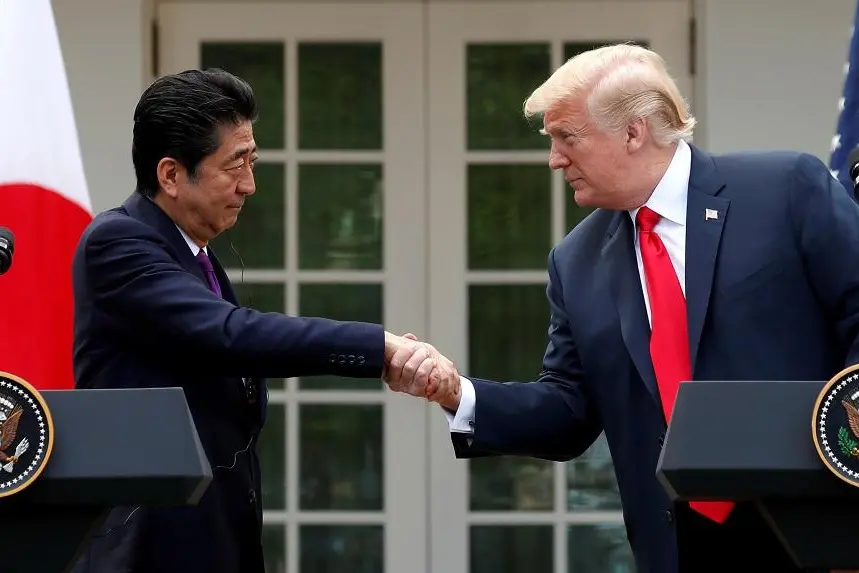PHOTO
HONG KONG - Shinzo Abe will be stuck with Donald Trump in 2019. The Japanese prime minister has some 5 million autoworkers to protect, and thus little choice but to sign a bilateral trade agreement with his pushy American counterpart. There will be some unsavory anti-China elements in it, too.
Cars will be at the heart of any deal. More than a third of the 4.7 million vehicles Japan exported in 2017 went to the United States. They accounted for two-thirds of the $69 billion trade surplus that irks Trump and prompted his threat of a 25 percent tax on imported vehicles.
Beyond just flattering Trump – as Abe did again at the G20 meetings in Argentina – Japan can point to some important distinctions in any trade talks. It is a major direct investor in the United States, the fourth-largest consumer of American farm produce and the linchpin of any security strategy in eastern Asia.
At the same time, Abe's $4.9 trillion economy and his unorthodox reform programme would struggle to survive the hit from U.S. tariffs. Trump is transactional by nature, but waiting for him to blink seems ill-advised. Nor could Abe accept strict quotas like the ones to which Seoul agreed on steel.
He has taken agricultural concessions off the table, limiting his options. Abe can, however, credibly promise bigger investments in the United States. Toyota Motor and Nissan Motor probably should be doing more anyway. Having scrapped a formal requirement that defence spending cannot exceed 1 percent of GDP, Japan could double its budget and devote the additional 5 trillion yen ($44 billion) to U.S. weaponry. What’s more, Abe can pander to Trump’s China hawks on the cheap, letting the United States insert a clause like one in the new NAFTA that allows it to withdraw from the treaty if Japan engages in trade talks with a "non-market economy," a mostly symbolic swipe at Beijing.
Despite recent warming in relations, Chinese negotiators are trapped by decades of relentless anti-Japanese propaganda and a desire to support their own domestic automotive industry. They cannot rebalance with their island neighbour without risking popular blowback. That should help clear the way for Abe to strike a deal with Trump.
On Twitter https://twitter.com/petesweeneypro
- This is a Breakingviews prediction for 2019. To see more of our predictions, click https://reut.rs/2R6H5pG
CONTEXT NEWS
- U.S. Vice President Mike Pence said on Nov. 13 that a bilateral trade deal with Japan was the best way to ensure a free and fair exchange of goods and services between the two countries.
- “The United States has had a trade imbalance with Japan for too long,” Pence said in a joint media appearance with Japanese Prime Minister Shinzo Abe. "American products and services too often face barriers to compete fairly in Japanese markets."
- Abe on Sept. 27 agreed to start trade talks with U.S. President Donald Trump.
- For previous columns by the author, Reuters customers can click on SWEENEY/
- SIGN UP FOR BREAKINGVIEWS EMAIL ALERTS: http://bit.ly/BVsubscribe
(Editing by Jeffrey Goldfarb and Katrina Hamlin) ((pete.sweeney@thomsonreuters.com; Reuters Messaging: pete.sweeney.thomsonreuters.com@reuters.net))





















